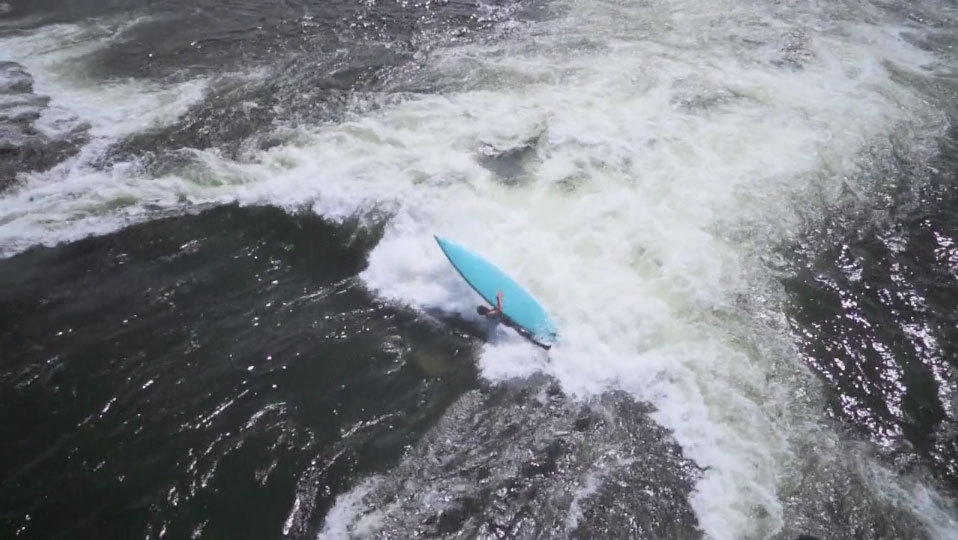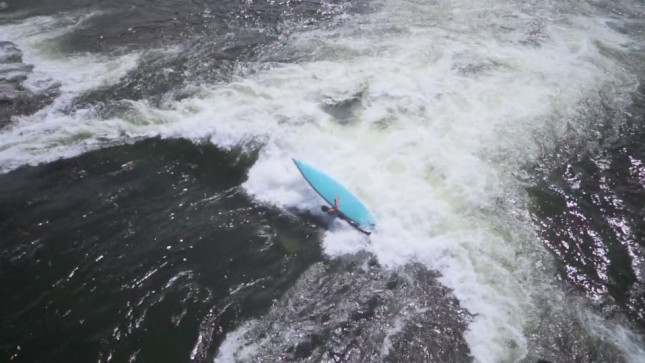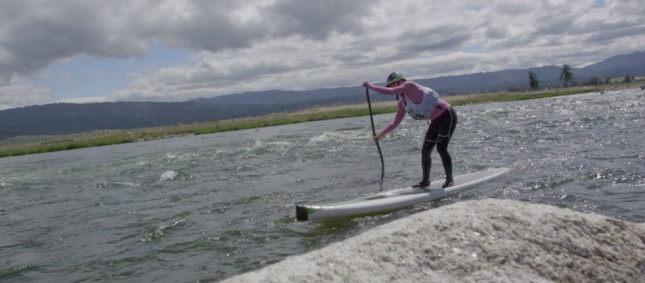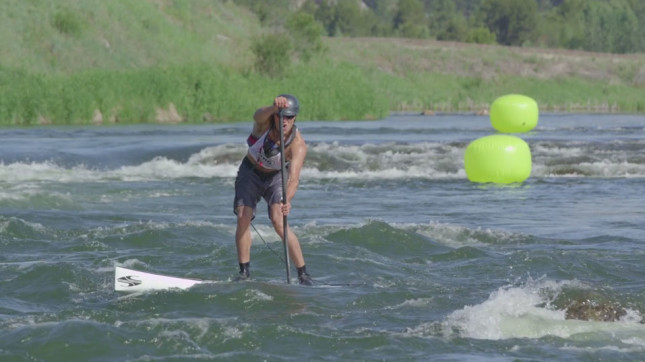
Payette River Games 2014: Here’s How The Record $50,000 Prize Purse Will Be Split
Remember last September when we announced the Payette River Games were offering the largest prize purse in SUP racing history? Well suddenly that event is only five months away (June 20th-22nd) and we’ve just got word on the exact prize money breakdown. And it’s very impressive…
We knew four months ago that Payette was throwing up a record $50,000 prize money, but what we didn’t know was how much the winner would walk away with. The total prize purse was already a record (by a long way) but would the event offer a record first place prize as well? Or would they simply spread the money too thin? And how much would go to the men vs. the women? Let’s find out…
In case you’re not aware of the Payette River Games (and up until the record prize money announcement most people weren’t) it’s a whitewater river race held in Cascade, Idaho. The inaugural event was run in June 2013 but the organisers have raised the stakes this year as part of a long-term vision of turning this into a premiere slice of the racing season. It’s not only a SUP event; there’s also whitewater kayaking as well as a bunch of land-based sports on offer. It’s basically a big festival at a whitewater park that just happens to wanna put SUP as one of the headliners.
But anyway there’s been a lot of talk and a lot of questions about this event, so I spoke with the organisers this week to get a better idea of what’s happening behind the scenes.
First thing that should be made clear is that although this is a very lucrative event – with record prize money that’s clearly designed to attract the world’s best and make this one of the races on the calendar – this is, fortunately, not just the case of an event throwing money at the wall and trying to buy the sport.
The history of the Payette River Games and its host, Kelly’s Whitewater Park, is a unique and interesting story on its own. That’s something we’ll cover in due course in the lead-up to the 2014 event, but for now let’s just say the organisers have the best of intentions and want to put on a big race for not only the pros but anyone who wants to have fun on a river.
Another misconception to clear up is that the $50,000 is exclusively for the Stand Up Paddle event. There’s ANOTHER $50,000 for the whitewater kayaking event. Yeah, it’s going to be a big weekend…
So the SUP event will consist of two races: A downriver sprint (1.5 miles) and a “SUP Cross” course (think: boarder cross but on a river instead of snow). Every paddler gets to do both races, with the top finishers based on combined results qualifying for the final. The final round will see the top performers go through each course once more to decide who gets the money.
Still can’t picture it? This slick little promo video will help:
Also, while there’s been plenty of discussion about whether or not women should get equal prize money to men, the Payette River Games have made it clear they want the top girls in Idaho: It’s an equal split all the way down.
And what a split it is…
The prize money at the Payette River Games is basically two entire Battle of the Paddle prize purses in the one event. Overall there’s a record $50,000 on offer, though that’s not the only record the event will produce.
The top guy and top girl will walk away from Kelly’s Whitewater Park with a record-setting ten grand each.
Offering $10,000 for the first placed female is a huge record. I’m fairly certain the previous record belongs to the 2012 Orange Bowl, where Candice Appleby won $5,000. Meanwhile $10k for the top guy is also a record in SUP racing history, though this one is an equal record.
The $10k mark was actually offered waaay back in the early days of Stand Up Paddle racing, when the Battle of the Paddles 2008 and 2009 gave $10,000 to Chuck Patterson and Jamie Mitchell respectively. Since then the Battle has lowered it’s first place prize to spread the cash more evenly, meaning it’s been almost five years since we’ve seen a five-figure cheque handed out at a race.
Either way it’s a lot of money.
This kind of prize money will inevitably attract many of the world’s best to Idaho, despite the event clashing with the major Lost Mills race in Germany (which is a huge bummer, I know a lot of paddlers wanna do both). Having many of the top names in Idaho for the weekend means the event will probably also attract a big chunk of amateur paddlers who want to a) have fun on a river and b) race against, learn from and generally just say hello and hang out with the stars of the sport.
Ok so here’s the exact breakdown for Payette River Games 2014…
OVERALL SUP PRIZE PURSE: $50,000
MEN’S PRIZE PURSE: $25,000
1st: $10,000
2nd: $6,000
3rd: $3,000
4th: $1,500
5th: $1,000
6th: $900
7th: $800
8th: $700
9th: $600
10th: $500
WOMEN’S PRIZE PURSE: $25,000
1st: $10,000
2nd: $6,000
3rd: $3,000
4th: $1,500
5th: $1,000
6th: $900
7th: $800
8th: $700
9th: $600
10th: $500
So there you go.
The 2014 Payette River Games is going to set some big records when it comes to prize money.
We can put in the usual disclaimer about “Oh but SUP is about the aloha not the money…” but the fact is if we want this to be a professional, legitimate, worldwide sport, we need bigger prize money. And Payette is definitely leading the way right now.
And like I said, the organisers have good intentions with this event (something that we’ll expand on in the coming weeks) so I think overall it’s going to be a great race. Unfortunately it clashes with one of Europe’s biggest races (the Lost Mills), but with $50k on offer I’m sure Payette will get its fair share of the top names and a whole stack of weekend warriors as well.
More news to come…
The Record-Setting 2014 Payette River Games By The Numbers:
– $50,000 is the highest prize purse in SUP racing history (smashing the previous record of $26,950 for the 2013 Battle of the Paddle)
– $10,000 is the highest first place prize for women in SUP racing history (again, smashing the previous record, which I believe was $5,000, by a long way)
– $10,000 is the equal highest first place prize for men in SUP racing history (equaling the records set by the BOP in 2008 and 2009)







You must be logged in to post a comment.